
Enraged, yes. Hurt? Incredibly. Surprised, no.
These days, I’m often asked whether I regret returning to the U.S. after spending 23 years working and living in France and the U.K. As I near the end of my first year back, the answer is a hard no. I’d rather have a front-row seat to watch, query, and appreciate the shift that’s occurring here. Europe, for the record, has its own issues with systemic racism in schools, institutions, and workplaces. But, country by country, it also provides a sturdier economic safety net and a more equitable health-care system, which have made managing the pandemic far easier for people across income brackets.
In the U.S., Floyd’s agonizing death on camera, along with pandemic-induced lockdowns, shed light on how badly society has failed the Black community. Black unemployment was 15.4% in June, the highest among race categories. Meanwhile, 26% of Black-owned businesses shuttered from February to May, compared with 11% of White-owned businesses. The disproportionate Covid-19 death toll in Black and Latino communities—at least twice the rate of Whites—is exacerbated by poor access to health care and a workforce that skews toward industries with greater risk of exposure to the virus.
What’s surprising is how long it has taken to confront our collective past.
This includes understanding the significance of Juneteenth—the day marking the effective end of slavery in the U.S.—the devastating legacy of Jim Crow laws, and the destruction of Black Wall Street in Oklahoma. Acknowledging this history is an important first step toward restructuring a system that’s persistently suppressed equitable access to wealth. But why, after so many years, is it happening now?
Bu hikaye Bloomberg Markets dergisinin August - September 2020 sayısından alınmıştır.
Start your 7-day Magzter GOLD free trial to access thousands of curated premium stories, and 9,000+ magazines and newspapers.
Already a subscriber ? Giriş Yap
Bu hikaye Bloomberg Markets dergisinin August - September 2020 sayısından alınmıştır.
Start your 7-day Magzter GOLD free trial to access thousands of curated premium stories, and 9,000+ magazines and newspapers.
Already a subscriber? Giriş Yap
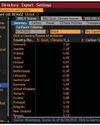
See Which Countries Are Falling Behind On Climate Change
Under the Paris Agreement, 190 countries and the European Union pledged to take steps to hold the global temperature rise to less than 2C (3.6F) from preindustrial levels—and preferably 1.5C.
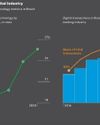
Billionaires Vie for the Future of Brazilian Finance
An escalating battle between two billionaires is upending the financial community in São Paulo, Latin America’s wealthiest city.

Ford Foundation's Darren Walker: ‘We Have to Get Uncomfortable'
DARREN WALKER, 62, disrupted his Wall Street life more than 25 years ago when he left what is now UBS Group AG to volunteer at a school and eventually pursue a career in community development and philanthropy. Since 2013 he’s been at the pinnacle of the philanthropic world as president of the Ford Foundation, created by the family of automaker Henry Ford during the Great Depression to advance human welfare.

Fueling the Ener Transition
I MAY BE BIASED, but some of the most important research and data on the Bloomberg terminal lies in one of its lesser-known functions: {BNEF }

Dig Into Analysts' Estimates for Disruptive Companies
THE PANDEMIC ERA generated a whole wave of disruptive companies as it accelerated the introduction of new products and services in areas including artificial intelligence, digitization, electronic payments, online meeting platforms, and virtual currencies.
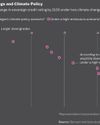
Climate Risks Come for Sovereign Credit
FOR YEARS climate scientists have warned about the ferocious wildfires and hurricanes that are now overwhelming many communities. Today alarms are ringing about a related financial danger: risks lurking within government bonds, the biggest part of the global debt market.

Responsible-Investing Pioneer Lydenberg Says ESG Needs An Upgrade
STEVE LYDENBERG’S passion for social change was inspired by anti-Vietnam War demonstrations, consumer boycotts, and the movement to divest from apartheid South Africa. But he didn’t take to the streets. Instead, Lydenberg turned to the world of finance to help catalyze societal change.

Engine No. 1's Grancio: ‘People Will Appreciate an Economic Argument'
ENGINE NO. 1 sent shock waves across corporate America in May when the fledgling investment firm won a boardroom battle with Exxon Mobil Corp., securing three seats on the oil and gas giant’s board after purchasing only about $40 million of its stock.
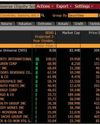
Find Out Which Companies May Ramp Up Payouts After Covid
AS THE PANDEMIC DISRUPTED business last year, many companies cut or suspended dividends. Which will boost their payouts when economies pick up again?
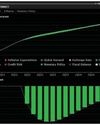
Get Into the Minds of Central Bankers as They Navigate Shocks
HAVE YOU EVER WONDERED how central bankers forecast the impact of shocks on the economy?